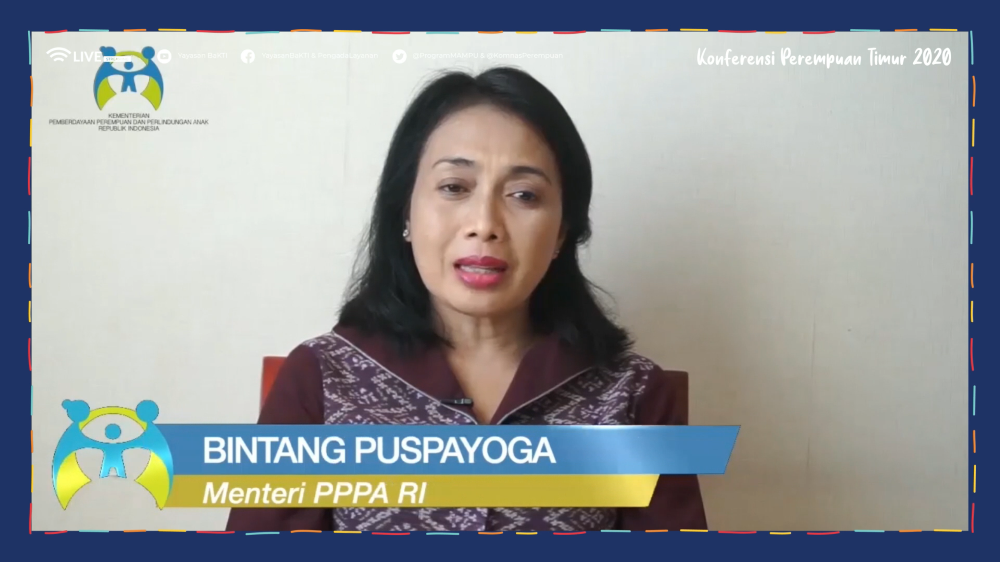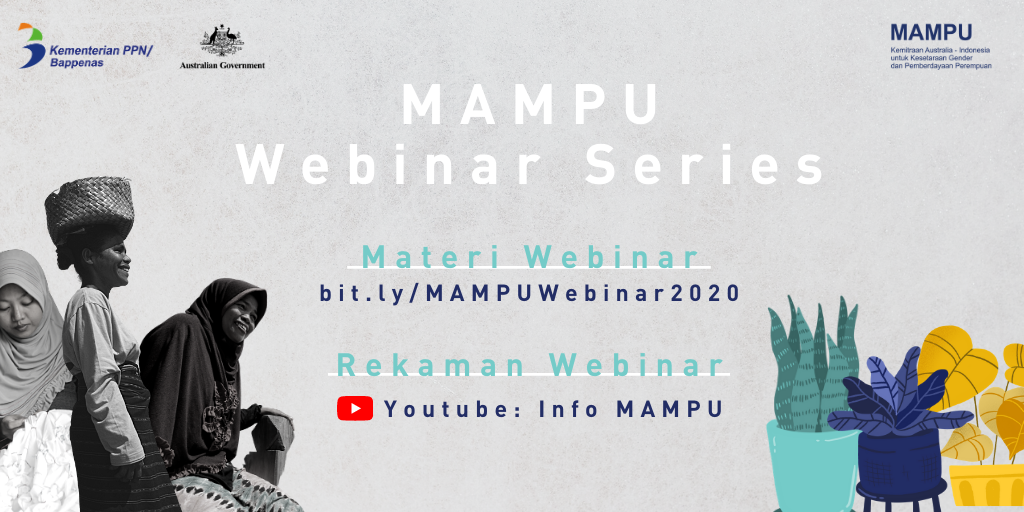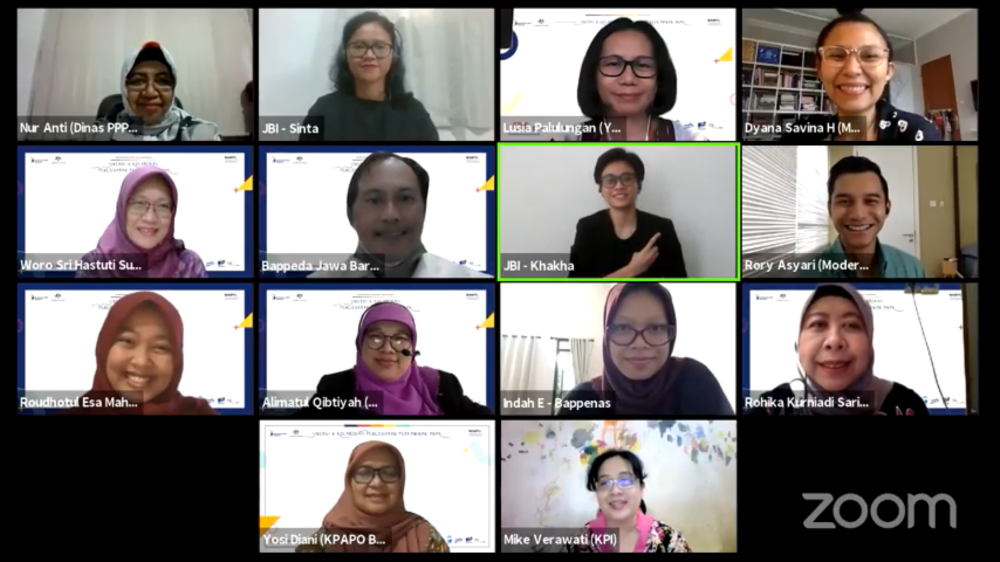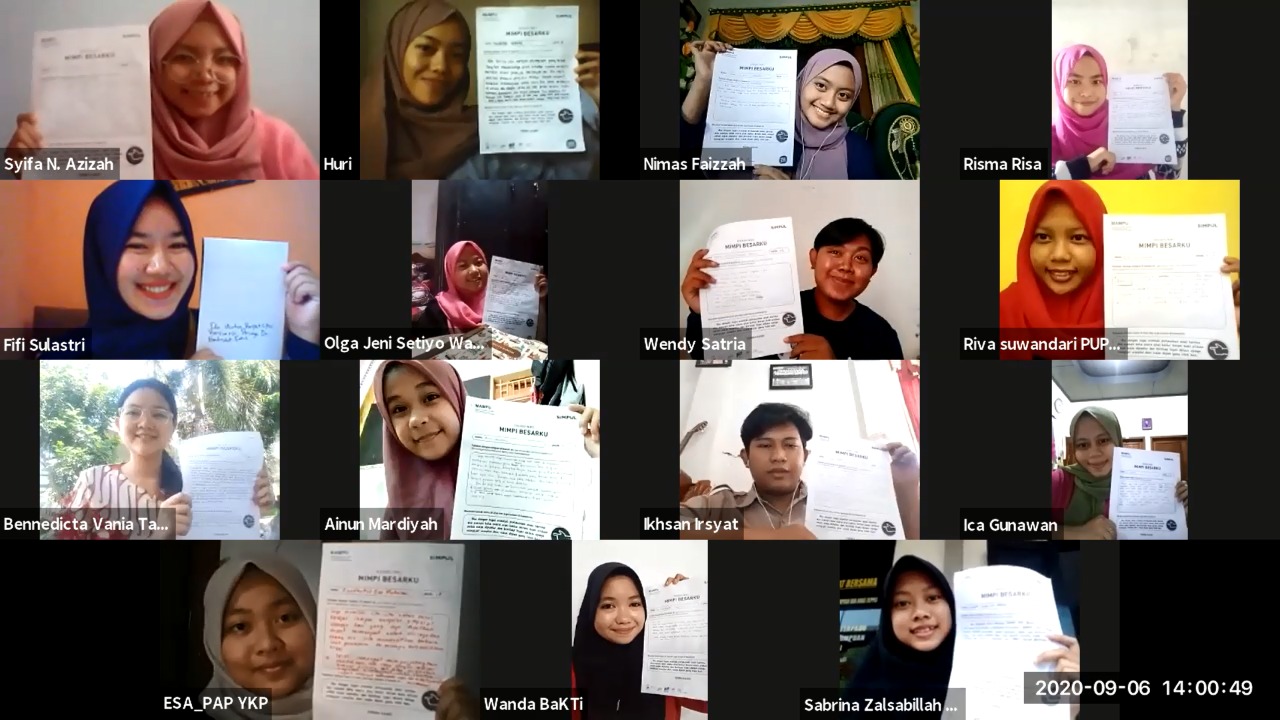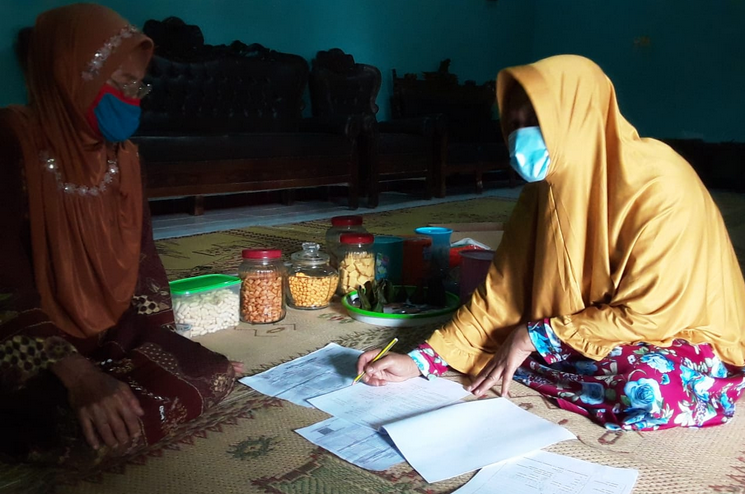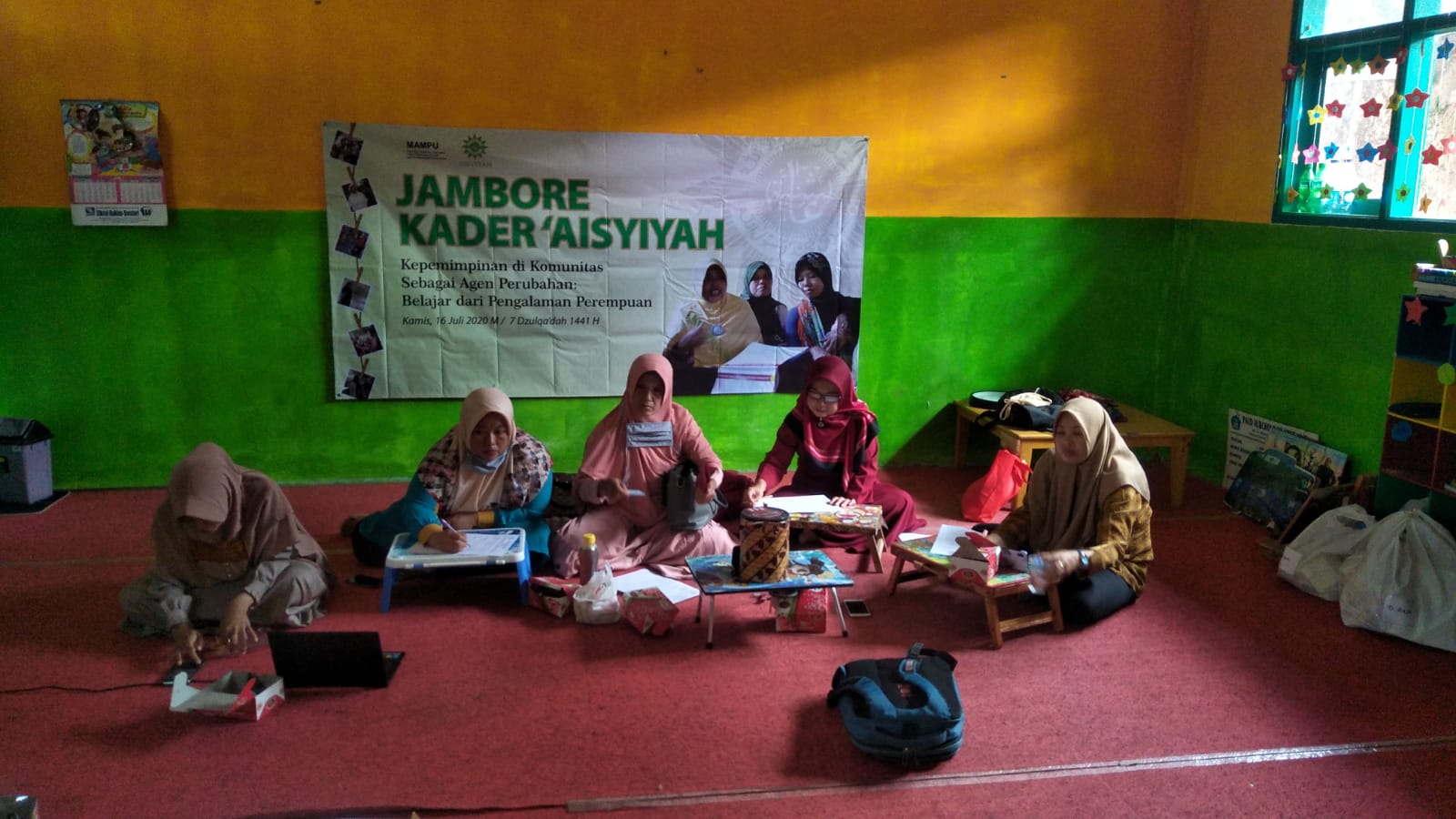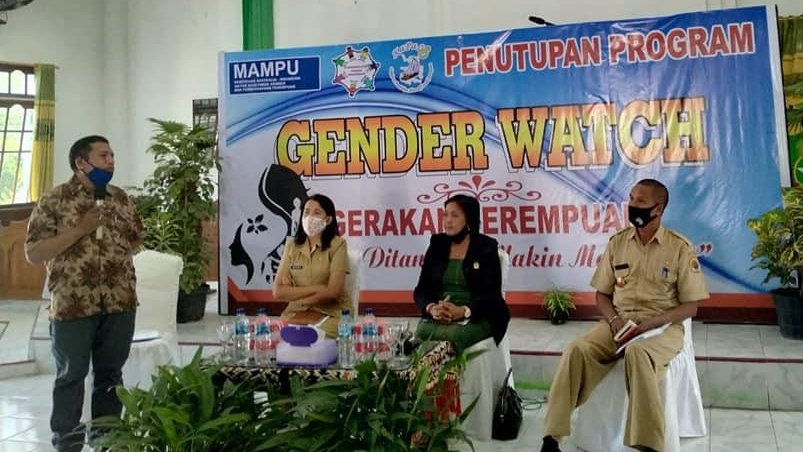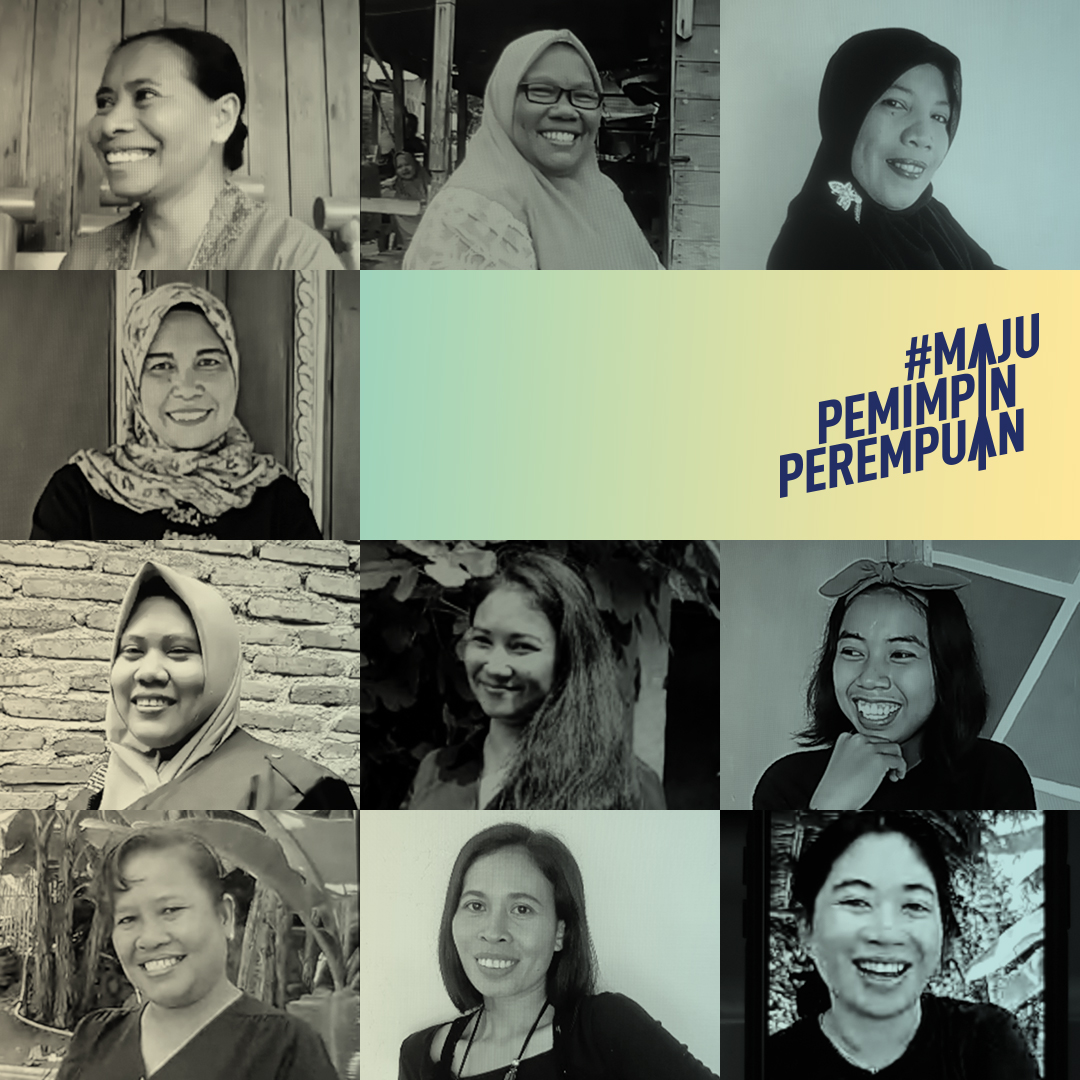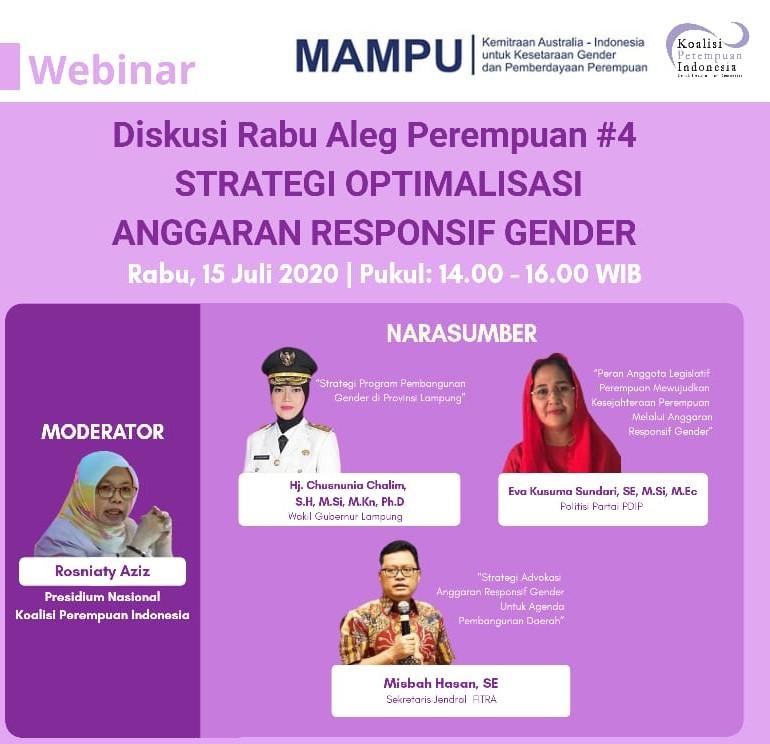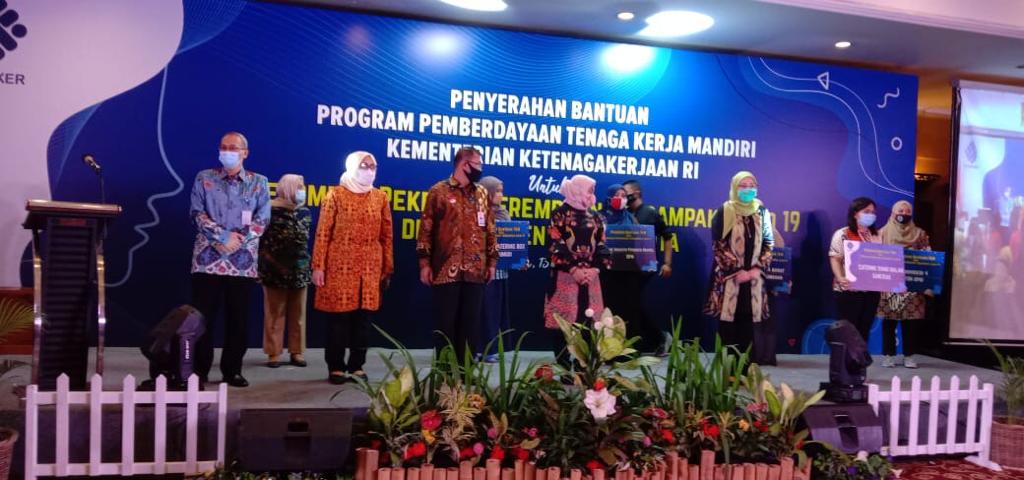Event
BSA is Encouraging Gender-Sensitive Pandemic Response Cooperation with the Village Government
23 June 2020Author: Amron Hamdi
Pipit (42), lives in Licin Village, Sumedang, West Java. Every day, she works as a principal and teacher of the local village playgroup. Pipit and members of the local Balai Sakinah ‘Aisyiyah (BSA) — a women’s network supported by the MAMPU Partner Aisyiyah — have felt the impact of the pandemic not just on the village economy but within the resident’s daily routines.
Pipit and other BSA members encouraged the Village Head to form a COVID-19 task force and to conduct comprehensive data collection on the distribution of social assistance during these times.
“Initially, because there were fears that many of the citizens who had returned to the village after working, or studying in different regions could have the virus, I proposed the establishment of a COVID-19 task force to the Village Head,” explained Pipit.
In addition to the task force, the BSA Group of Desa Licin also lobbied to establish the COVID-19 data collection post to better organise the response to the coronavirus. The group has also created and distributed face masks, and begun providing community education programs to inform locals about how best to prevent the spread of COVID-19.
In Kartiasa Village, Sambas Regency, West Kalimantan, Surima, a BSA member, has been engaging in similar activities to Pipit. Surima explained that the BSA in Kartiasa Village had already produced and distributed about 600 face masks. “We made the masks and distributed them in the community, especially to people with disabilities, the elderly, and the poor,” said Surima.

The scarcity of face masks in Kartiasa Village motivated Surima and friends to initiate the production and distribution of face masks until eventually their work was recognised and officially supported by the Kartiasa Village Government. “The Village Head plans for one family to receive six masks so the entire community of Kartiasa Village will require approximately nine thousand masks,” Surima said.
The local BSA group will continue to work to support the ‘nine thousand mask program’ initiated by the Kartiasa Village Government. In addition to helping to prevent transmission of the virus, the face masks also have the potential to provide income for women who have lost their income due to the pandemic.
“Thank God, sewing masks has provided an income for 20 women because the village government pays IDR 1000 per mask,” Surima said.
BSA also actively shares information and advice about how to use and clean the cloth face masks. “We educate people that these cloth masks can only be used for four hours, after that it must be washed with soap, dried and ironed before it can be used again.” The distribution of face masks complies with the recommended social distancing requirements and prioritises the safety of the local community.

Pipit and Surima have demonstrated the importance of listening to and involving women in the planning and implementation of the response to the pandemic. The protection of women as important actors in public health efforts is a fundamental step, especially when women carry out strategic roles that underpin public health efforts during the pandemic.




